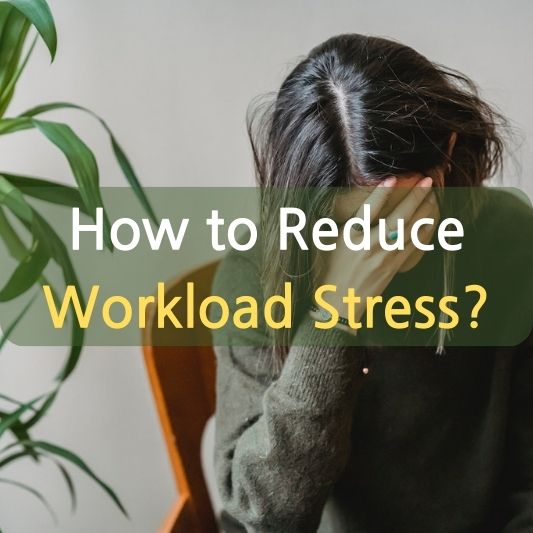In the fast-paced world we live in today, managing a heavy workload is a common challenge for many individuals. Workload stress can have detrimental effects on both our physical and mental well-being, making it crucial to find effective ways to reduce and manage it. In this article, we will explore the causes, signs, and most importantly, practical strategies to reduce workload stress.

Understanding Workload Stress
Workload stress, also known as occupational stress, occurs when the demands of your job surpass your ability to cope with them. It can result from various factors, including excessive work hours, unrealistic expectations, and insufficient resources.
Recognizing the Signs of Workload Stress
To effectively combat workload stress, it’s essential to recognize its signs early. Common indicators include fatigue, irritability, reduced productivity, and even physical symptoms like headaches or digestive issues.
Causes of Workload Stress
Several factors contribute to workload stress, such as tight deadlines, a high workload, lack of control over your tasks, and poor working conditions. Identifying the root causes of your stress is the first step in addressing it.
The Impact of Workload Stress on Your Health
Workload stress can have severe health implications, including an increased risk of heart disease, depression, and anxiety. It’s essential to prioritize your health and well-being to avoid these potential consequences.
Strategies to Reduce Workload Stress
Time Management
Effective time management is crucial in reducing workload stress. Create a schedule that allows you to allocate your time to various tasks, ensuring you meet your deadlines without feeling overwhelmed.
Setting Realistic Goals
Setting achievable and realistic goals is vital. When your goals are attainable, you’ll feel a sense of accomplishment, reducing stress and increasing motivation.
Delegation of Tasks
Don’t be afraid to delegate tasks when possible. Delegating can help distribute the workload and prevent you from taking on too much responsibility.
Mindfulness and Stress Management Techniques
Incorporate mindfulness practices and stress management techniques into your daily routine. Activities like meditation, deep breathing exercises, and yoga can help you stay calm and centered.
Balancing Work and Personal Life
Maintaining a work-life balance is essential. Set boundaries and ensure you have time for family, friends, and personal hobbies.
Healthy Lifestyle Choices
A healthy lifestyle, including regular exercise and a balanced diet, can boost your resilience to stress and improve your overall well-being.
The Importance of Regular Breaks
Taking regular breaks during the workday can help recharge your energy and improve focus. Short breaks can significantly enhance your productivity.
Effective Communication with Your Team
Open and clear communication with your colleagues and superiors is crucial. Discussing your workload and seeking support when needed can alleviate stress.
Prioritizing Self-Care
Make self-care a priority. Engage in activities that bring you joy and relaxation, whether it’s reading, listening to music, or spending time in nature.
Seeking Professional Help
If your workload stress becomes overwhelming and persistent, consider seeking professional help. A therapist or counselor can provide guidance and support.
Conclusion
Reducing workload stress is essential for maintaining a healthy work-life balance and overall well-being. By recognizing the signs, addressing the root causes, and implementing effective strategies, you can regain control over your work-related stress and enjoy a more fulfilling life.
FAQs
1. How can I tell if I’m experiencing workload stress?
Workload stress often manifests as fatigue, irritability, reduced productivity, and physical symptoms. If you notice these signs, it’s essential to address your stress levels.
2. Can workload stress affect my physical health?
Yes, workload stress can lead to various health issues, including heart disease, anxiety, and depression. It’s crucial to manage your stress for the sake of your health.
3. What are some quick stress-relief techniques I can use at work?
Quick stress-relief techniques at work include deep breathing exercises, short walks, and stretching. These can help you relax and refocus.
4. How can I balance my personal life with a demanding workload?
Balancing personal life and work involves setting boundaries, prioritizing self-care, and managing your time effectively.
5. When should I seek professional help for workload stress?
If your workload stress becomes overwhelming and affects your daily life, it’s a good idea to consult a therapist or counselor who specializes in stress management. They can provide tailored support and coping strategies.
Find out how much nutritional supplements reduce stress on iHub!
